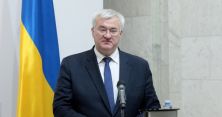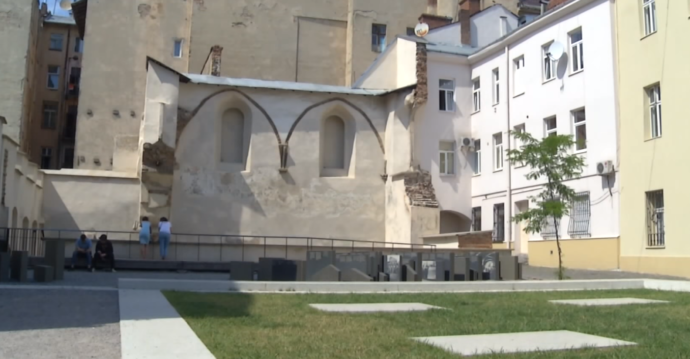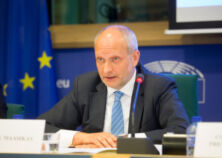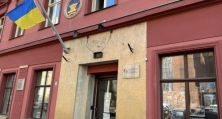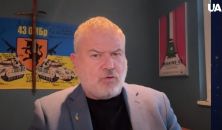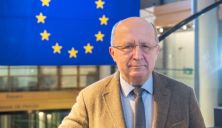“If people come to a temple, even if they aren’t religious but they want to work on their character, it’s a prayer. We come here to concentrate on the good, helpful, and positive. Then, everything else goes away by itself,” said Mordechai Shlomo Bald, a chief Rabbi of Lviv and western Ukraine.
Bald moved to Ukraine, the land of his ancestors, from the United States at the beginning of the 1990s. Since then, he became the de facto head of the Lviv Jewish community.
“There is no language or territory which would unite the Jewish people. Even culture doesn’t unite the Jewish people. Every country has a different Jewish culture. No one spoke Hebrew for a thousand years, but the Jewish people have stayed alive,” Bald said.
The first Jews settled in Lviv when the city was just founded. They lived in a Jewish quarter next to Ukrainians, Poles, and Armenians.
“The Arsenal wall in Lviv is one of the four walls separating the Jewish quarter from the other parts of the city,” Lviv Jewish quarter tour guide Yelyzaveta Malenko said. She said that at night, the doors were closed on both sides. In the Middle Ages, Lviv Jews lived separately.
From the end of the 16th century and until the end of World War II, the Golden Rose Synagogue was located on the central street of the Lviv Jewish quarter. It was named after the wife of Isaac Nakhmanovich, who was the head of the Lviv Jewish community.
The synagogue could only be entered through the house of the Nakhmanovich family or through the Jewish school – Beth Midrash.
Last winter, the square where the Golden Rose was located was reconstructed, and historic plaques were attached to its walls. There you can also find a restaurant where visitors can try traditional Jewish dishes and different jazz versions of national Jewish songs are played in Lviv’s central square.
“This restaurant was opened to remind people about the city’s Jewish history. About the fact that one-fifth of the city’s population used to be Jewish. And to bring people closer to the Jewish culture,” Malenko said.
“I would like to repeat the words of a wise man, who said ‘When you see a Jew, it means that this Jew is pointing to the Creator. When you hear the word ‘Israel,’ it is also pointing to the Creator.’ I like Jewish culture. I came here to become more familiar with it,” Lviv resident Vitaliy Kaplan said.
“Our Lviv house was home to Polish, Jewish, Russian, Ukrainian, and Tatar people. It was a square house. You would enter the yard and see everyone on the balconies. We all lived together. I remember my Jewish neighbors well. They were very noble people,” another Lviv resident, Anatoliy Levchuk, said.
